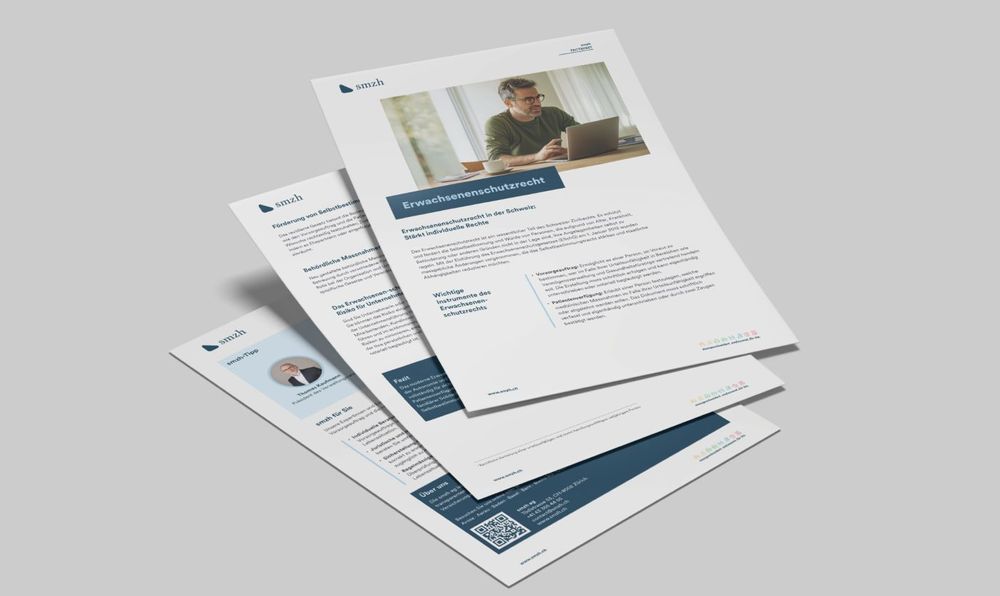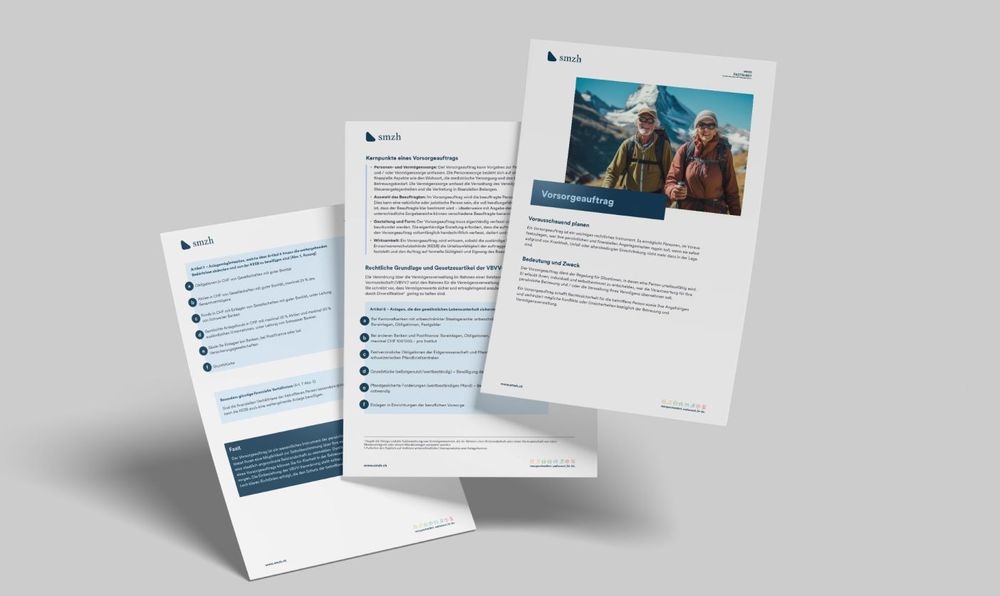Adult protection law governs who will manage your personal, financial, and medical affairs in the event that you lose capacity to make decisions. The aim is to ensure that your wishes and interests are protected in case you are unable to make decisions yourself.

allows a person define one or several representatives who may act and make decisions on their behalf.
may be defined for personal, financial, and legal matters.
If a company is part of your assets, a power of attorney is particularly important to ensure business continuity or your company succession order as well as financial stability.
An advance care directive specifies which medical measures should be taken or omitted if you are no longer capable of making decisions yourself.
It ensures that your medical preferences are respected and relieves your loved ones from being forced to make difficult decisions in already challenging situations.

Discover the key aspects of adult protection law, which safeguards your self-determination and dignity should you suddenly become unable to manage matters on your own.
(in German)

Shine, glamour – and very down-to-earth: Entrepreneur and entertainer Alf Heller talks about financial planning, retirement provision, and the question nobody asks but everyone faces: What about a power of attorney?
(in German)

Discover how the right tools in adult protection law can help you maintain your self-determination – even if one day you are no longer able to make decisions yourself.

Who decides on your behalf if you are no longer capable of doing so? A living will provides a clear, legally sound, and forward-looking answer to this question.
Without advance directives in place, a court-appointed guardian will be assigned in cases of emergency, and that person may not act according to your wishes.
Spouses are only allowed to act on your behalf in medical matters to a limited degree. They are not permitted to make financial or legal decisions for you without a power of attorney.
Domestic partners who are not married or in a registered partnership are not legally authorized to make decisions on your behalf without a power of attorney.
It is important to update powers of attorney in a divorce to ensure that your former spouse is no longer authorized to make decisions on your behalf.
Decide who is suitable to be your representative and act in your best interest.
Define specific wishes regarding medical treatments (e.g., resuscitation, artificial nutrition).
Mind the formal requirements: The power of attorney must be handwritten, dated, and signed by you or notarially certified.
Define responsibilities: Establish who should be in charge of managing your wealth, take medical decisions, and look after your personal care.
Advice: Support from legal experts or notaries.
Important in case of company ownership: A clearly defined power of attorney for business management or succession planning protects the company and its employees should you lose decision-making capacity.
Define preferences for medical care: Clear instructions regarding life-sustaining measures, pain management, or organ donorship.
Advice: Talk to doctors to understand the implications of medical decisions.
Your documents should be easy to access for your representatives or medical doctors.
Advance care directives can be filed with a central authority such as the civil registry office or private providers.
Advance directives should be reviewed every 3-5 years and in case of significant life changes.

Plan your retirement provision with smzh – with foresight, competence, and in a personalized way.

We handle questions such as those shown on the right on a daily basis. You don't need to deal with them by yourself – our 360° Check-Up is free of charge and non-binding.
A power of attorney ensures that your personal, financial, and medical matters are looked after by a person you trust in case you lose decision-making capacity. This is particularly important when companies are a part of your estate, as a power of attorney protects your business from uncertainty and establishes clear succession arrangements.
In this case, a court-appointed guardian will represent your interests. However, this person may not act in full accordance with your wishes.
A power of attorney governs personal, legal, or financial matters. An advance care directive stipulates what kind of medical measures may be taken or not be carried out.
The advance care directive should be easily accessible and known to exist. Leave it with someone you trust or file it with a central authority.
These documents should be reviewed every 3 to 5 years or following significant events such as marriage, childbirth, divorce or a move abroad.